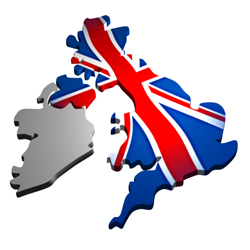As election campaign kicks off, UKIP is setting the agenda,. Uk Election camping Kick off, UK election 2015 Election news updates, general election news
- Details
- Last Updated: Saturday, 07 February 2015 16:07
UK election 2015: As election campaign kicks off, UKIP is setting the agenda

At the launch of Labour’s election campaign in Manchester, Ed Miliband accused the prime minister, David Cameron, of playing “risky and irresponsible games” with the EU. Exit, he argued, would be a “dramatic mistake” for the British economy.
In tackling the Europe question during a speech lauded as the start of the 2015 election race, Miliband confirmed that the EU is now well and truly on his agenda. And there can be no doubt about who put it there.
Both Labour and the Conservatives have been playing catch-up with UKIP on this issue for some time. UKIP is marching from one electoral success to another, with the main parties still trying to make sense of its European and by-election victories last year.
The many public opinion polls conducted since 2010 show a surge in UKIP support. The party’s potential to reshape the contours of British party politics is increasingly apparent.
Old argument
UKIP’s message is that the UK must exit the EU to halt the flood of immigrants, restore national sovereignty and end the stifling regulations imposed by Brussels bureaucrats. As Nigel Farage tells it, the major parties and their leaders are nothing less than a policy cartel that cannot be trusted to protect British interests and fails to provide voters with real choices on important issues.
And this is a message that plays well beyond the stereotypical UKIP voter – older, poorly educated, lower middle-class and working-class men. Dissatisfaction with the EU is spreading. Data from monthly national surveys since April 2004 show that UKIP support has increased in steady relation to attitudes towards the EU.
Public opinion about the EU has become increasingly negative in the wake of the 2008 economic crash and ensuing eurozone sovereign debt crisis; the result has been to propel UKIP support upward. Hard times have tarnished the EU’s brand and UKIP has reaped the benefits.
That might suggest that Miliband’s defence of the EU will not sit well with the electorate. Analyses also show that UKIP has benefited by continuing public hostility to what many see as excessive immigration. This hostility is not new, but UKIP has enjoyed considerable success in making a case that it is the only party that would really do anything to stem the tide.
New territory
UKIP is benefiting from public unhappiness in two other major areas – the economy and health. Labour has been keen to capitalise on this too.
In his launch speech, Miliband attacked the Tories on both these points: the Conservative economic record is one to “run from” not “run on”, threatening the NHS “as we know it”.
UKIP is picking up voters who are unhappy with government performance on these major issues but don’t see Labour as offering a credible alternative. The opposition’s reputation for economic competence was severely damaged by the 2008 financial crisis and negative public reactions to the Labour leader don’t help either.
Nor can they turn to the Liberal Democrats as the sensible “none of the above” option they once were. Our surveys repeatedly show that party leader Nick Clegg is politically toxic for much of the electorate.
UKIP is acutely aware of the importance of changing how voters see the available choices. As Farage remarked in 2011: “The Liberal Democrats are no longer the voice of opposition in British politics – we are. Between now and the next general election our aim is to replace them as the third party in British politics”.
So far, Farage and his colleagues have skillfully exploited the opportunities presented to them by the contemporary political context. Miliband, Cameron and Clegg have all acknowledged this and now need to provide some meaningful options to avoid losing any more supporters.
src:theconversation


